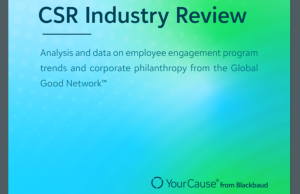Plenty of PTO, pairing staff for personal support
Leaders at the United States Tennis Association Mid-Atlantic Section (USTA-MAS) are pretty serious about everyone taking vacations, which would seem only natural for an organization where the mission is about play and recreation. The new vacation policy affords employees unlimited paid time off (PTO) to go out and play.

“We really make a big deal of telling everybody we want you to take vacations, and we want you to be able to afford vacations, too,” said Tara Fitzpatrick- Navarro, the organization’s president and CEO.
It wasn’t hyperbole. Last year each of the 36 employees received a membership to Going.com, an online flight discount aggregator formerly known as Scott’s Cheap Flights. Since even a cheap flight won’t be much help if you can’t afford the accommodations and other activities that make for a memorable vacation, they also received a subscription to an online program called “You Need A Budget” (YNAB), which helps users plan for vacations and other expenses.
There is a reason USTA-MAS in Herndon, Virginia, finished first for the third year in a row in NPT’s Best Nonprofits To Work For competition.
USTA-MAS had an unusually generous PTO policy even before last year, having previously given everyone 27 vacation days annually, in addition to 14 holidays. Fitzpatrick-Navarro said. “But we frankly started to ask ourselves: Why are we micromanaging the policy and dealing with HR approvals and all that? Why not just make the policy match what we really believe?”
Big Brothers Big Sisters (BBBS) of the Midlands doesn’t have an unlimited time-off policy, but it does reward employees with paid sabbaticals they can take upon reaching longevity milestones. The organization, which ranked 13th overall and 9th among small nonprofits, offers paid sabbaticals of up to four weeks for employees reaching eight years of service. Those with 15 years of service can take up to five weeks, which they can continue taking every five years thereafter. The sabbaticals can be further extended for up to two additional weeks of unpaid time off.
The Ulman Foundation, a Baltimore-based charity for young adults facing cancer, is also no slouch when it comes to affording R&R time for its staff, which helped it rank 36th on the overall list and 20th among small nonprofits. Among the perks its 17 employees enjoy is an on-site fitness center with Peloton bikes, treadmills, weights, a boxing bag, and shower facilities. The amenities are there for cancer patients and their families to use during extended treatment stays at the charity’s residential facility. Employees, some of whom are former cancer patients, also get to use them.
“One of the benefits of running our organization out of Ulman House, which operates as a 365-day, seven-day-a-week home away from home for the people we serve, is the complimentary services we bring in for our patients and families that are also available to our staff,” said Brock Yetso, the organization’s president and CEO. “We also bring in massage therapy and acupuncture for our residents, which our employees have the opportunity to use and benefit from, though never at the expense of patients.”
Ulman Foundation employees can decompress via an eclectic array of monthly employer-paid outings, where among other recent activities they might try their hand at axe-throwing one month or get treated another month to a relaxing session at The Salt Sanctuary, which offers halotherapy, reflexology and other spa treatments in a soothing cave-like setting replete with a sauna and steam room.
USTA-MAS and Ulman Foundation provide supplemental health and wellness stipends for employees to use outside of work for gym memberships, yoga, massage treatments, diet and nutritional counseling, or pretty much anything else falling under the umbrella of health and wellness.
Such benefits might sound generous, but leaders of progressive organizations like these say investing in the well-being of staff members is simply good for business and builds loyalty.

USTA-MAS leaders found that any misgivings about the possibility that people might abuse unlimited PTO were unwarranted. Said Fitzpatrick-Navarro, “If anything, we’re finding that in most cases, we have to encourage people to take time off rather than the other way around, which is why we created the new benefit.”
The unlimited PTO has a few safeguards, such as expecting vacation time to be coordinated in advance with a manager and requiring vacations of more than two consecutive weeks to receive direct approval from Fitzpatrick- Navarro. It’s mainly to avoid people taking leave all at once, she said.
USTA-MAS staff have access to an employer-paid concierge service, which performs tasks such as picking up meals or dry cleaning or securing childcare arrangements, doctor’s appointments, or finding them a plumber. Getting mundane and sometimes time-consuming tasks off their plates gives employees peace of mind so they can better focus on their jobs, said Fitzpatrick-Navarro.
It seems to be working, given how USTA-MAS keeps growing. The organization, which administers the largest adult recreational tennis league program in the world and is all about promoting the sport of tennis, has avoided layoffs since the pandemic and added five new people during the past year. There are plans to add as many as 10 more. These are new positions, not vacancies being filled to replace employees who have left.
“Tennis right now is booming and we’re achieving on our mission, which means we need more resources to do even more. And in my opinion, that’s what every nonprofit wants,” said Fitzpatrick- Navarro.
USTA-MAS is achieving all that even as significant numbers of its employees continue to work remotely. “There’s definitely been an uptick in people who want to come into our office, which is being used more regularly, but employees can now work from anywhere anytime,” Fitzpatrick- Navarro said.
That’s not the case at Big Brothers Big Sisters (BBBS) of the Midlands, where the Omaha, Nebraska organization’s 31-member workforce is now 100% remote. The “new normal” of working remotely led the organization to downsize in November 2021 from its former headquarters in an Omaha office park to an interim location with a smaller footprint in the city’s downtown. The move has some upside by enhancing the organization’s visibility to the community, but the setup has also forced a concerted effort to maintain the sense of camaraderie and teamwork that had long enabled it to operate as a well-oiled machine.
“It’s definitely a different experience for a new hire to start a position where the traditional meet-and-greet is done remotely and without them having the memory of what it was like when we were all together,” said Nichole Turgeon, president and CEO of BBBS of the Midlands. “I think generally we would all like to be able to see each other more and be in the office for at least one or two days a week, so that’s something we’ll probably be looking for in our next space.”
Remote and hybrid work are becoming a mainstay of how organizations operate, which presents challenges to the esprit de corps that mission-based nonprofits have long relied on.
BBBS of the Midlands holds monthly meetings via Zoom, “but we mix it up,” said Turgeon. Employees started off last year with a virtual staff gathering where they created vision boards for the year and have since resumed periodic in-person trainings. A staff appreciation committee hosts fun activities throughout the year, such as Topgolf outings and an annual Halloween party with a parade where employees are invited to bring their costumed children. A Thanksgiving potluck was held in November with the agency providing the main course as well as a vegan alternative.
 The Ulman Foundation has a rotating buddy system where each employee is randomly assigned a new “buddy” from within the organization once a month. “It was a really powerful thing coming out of COVID, and basically it’s just a way of saying we want you and this other person to get together with each other,” Yetso said. “It can be for coffee, lunch, going for a walk, or even happy hour. You figure it out and go learn more about the folks you’re working with, and if there’s a meal or coffee, we cover that. Everyone really enjoys it and gets to do it on work time, too.”
The Ulman Foundation has a rotating buddy system where each employee is randomly assigned a new “buddy” from within the organization once a month. “It was a really powerful thing coming out of COVID, and basically it’s just a way of saying we want you and this other person to get together with each other,” Yetso said. “It can be for coffee, lunch, going for a walk, or even happy hour. You figure it out and go learn more about the folks you’re working with, and if there’s a meal or coffee, we cover that. Everyone really enjoys it and gets to do it on work time, too.”
Ulman Foundation employees use a software program that allows them to give each other virtual “high fives” for going above and beyond. A copy of the congratulatory “high five” also goes to that person’s manager. Additionally, the organization hosts a biweekly “breakfast club” where employees are recognized for personal milestones and for overall excellence.
“The team members take turns bringing in breakfast, so it becomes a fun competition to see who’s got the best breakfast,” Yetso said. “For birthdays, we also make sure people get what they want, whether it’s chocolate or something else. And for work anniversaries, we do a round robin where everyone shares one word that comes to mind when they think of that person. It’s really short and sweet, but pretty powerful.”
USTA-MAS has a culture committee which hosts quarterly in-person coffee chats where “anyone who wants to can show up and talk about whatever,” said Fitzpatrick-Navarro. “We also do three in-person retreats each year, where we pay for everyone’s travel and offer food, and also carve out time so people aren’t only focused on work but can also focus on playing and getting to know one another.” Recent retreats have included a painting party as well as a “speed social” where they took turns speaking to one another in two-minute bursts.
Community service can also play a role in fostering esprit de corps and job satisfaction at mission-focused nonprofits. Each USTA-MAS employee can work two paid days of community service each year in addition to quarterly group projects they all partake in collectively, such as a recent food drive they conducted for a local food bank.
BBBS of the Midlands employees also take part in recurring community service projects. Prior to the pandemic, the organization “adopted” a city park where employees conducted monthly cleanups. “We also did another park cleanup together as a team on Earth Day last year and helped local food banks and schools with food distribution during the pandemic. And employees who volunteer in our mentoring programs can receive a bit of paid time for that, which they supplement with their own time,” Turgeon said.
The organization’s mission and support for projects such as these are part of the reason it continues to enjoy a “really high” retention rate of more than 90% annually, said Turgeon. “And when you can go out and do these types of things and feel good about what you’re doing, it inevitably leads to team-building,” she said.
Job satisfaction alone doesn’t pay the bills, so “we had to make some moves on compensation last year after looking at the market data and realizing we had probably fallen a little behind, and not just because of inflation,” Turgeon said.
It’s a perennial challenge for managers who must balance compensation with the need to be good stewards of donor funds, she said.
Ensuring team members feel valued and appreciated factors into BBBS of the Midlands’ approach to diversity, equity, and inclusion (DEI). This includes monthly DEI “Talk About It” sessions, where recent topics have touched on antisemitism, unconscious bias, and discrimination against natural hair in the Black community. “We don’t have a big budget to spend thousands of dollars each month on outside consultants, but we regularly have discussions of topics from YouTube videos and online articles, as well as occasional guest speakers,” Turgeon said.
USTA-MAS implemented an inclusive leadership series, which is being augmented on the data side with metrics related to recruitment, interviewing, and hiring “to figure out how we can best engage people of different backgrounds,” said Fitzpatrick-Navarro.
The Ulman Foundation’s commitment to DEI extends to those with physical and mental disabilities and is tied to the mission. Yetso explained that the organization takes its name from his close friend and organization founder, Doug Ulman, who was diagnosed with cancer at age 19 while preparing for his sophomore year as a Division I soccer player at Brown University. “He’s doing well now and started the foundation in 1997 to serve people like him,” Yetso said. Ulman is now chief executive officer of Pelotonia, a cancer charity in Columbus, Ohio.
The foundation has since made a point of hiring other cancer survivors. “When you’re impacted by cancer, it sometimes can cause physical, emotional and mental disabilities that can take a toll but still don’t prevent you from being an incredible employee,” Yetso said. “The nature of our work with the adolescent and young adult cancer community has allowed us to have a lot of success hiring people with a strong connection to our cause, which is great because we always want to find people who understand and relate to the work we’re doing.”











